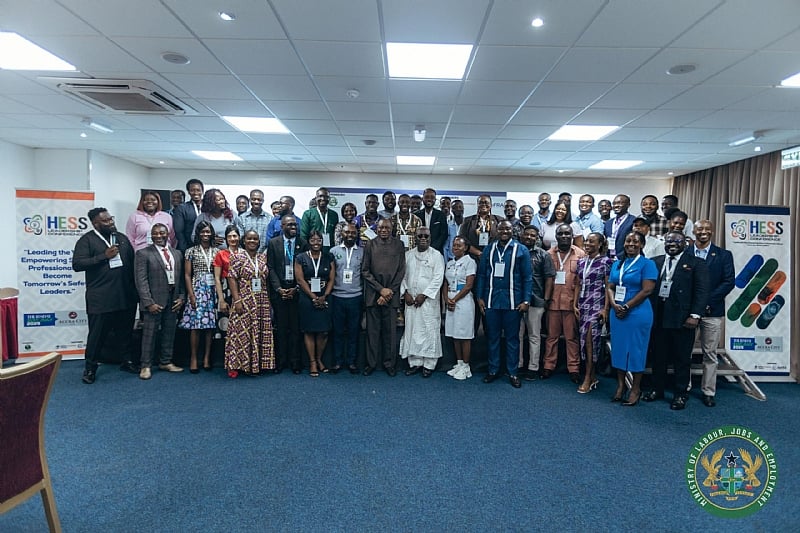The Ghanaian government is actively developing a comprehensive National Occupational Safety and Health (OSH) Policy, signaling a significant step towards prioritizing workplace safety and health across all economic sectors. This policy, currently in advanced stages of development, aims to establish a clear and coordinated framework for managing workplace safety and health, outlining the roles and responsibilities of all stakeholders involved. The policy will address cross-cutting issues such as gender, disability, climate resilience, and the informal economy, ensuring inclusivity and responsiveness to diverse workplace contexts. Furthermore, the policy will guide the development of sector-specific safety policies and provide support for OSH implementation at the enterprise level, fostering a tailored approach to safety management. This national policy underscores the government’s recognition of OSH as a core pillar of sustainable development, moving beyond reactive measures towards proactive strategies for preventing workplace incidents and promoting worker well-being.
The Minister for Labour, Jobs and Employment, Dr. Abdul-Rashid Hassan Pelpuo, emphasized the importance of OSH during his address at the HESS Leadership Conference 2025. He highlighted the policy’s potential to improve workplace safety, health, and productivity, contributing to overall economic growth. Dr. Pelpuo urged the private sector to prioritize safer work environments, recognizing that safe and conducive workplaces lead to reduced absenteeism, increased productivity, and improved employee morale, ultimately benefiting both businesses and workers. He also outlined government interventions aimed at strengthening OSH systems, including the formation of a Special Task Force on Compliance and Enforcement.
This task force will conduct nationwide OSH audits, inspections, and certifications, focusing on high-risk sectors such as construction, mining, and manufacturing. By proactively identifying and addressing safety gaps, the task force aims to ensure compliance with national laws and international best practices. Furthermore, the task force will engage with employers and workers to offer guidance and support, fostering a collaborative approach to improving workplace safety. This proactive approach demonstrates the government’s commitment to enforcing OSH regulations and holding businesses accountable for maintaining safe working environments.
In addition to the national OSH policy and the task force, Ghana is developing its first National Occupational Safety and Health Profile in collaboration with the International Labour Organisation (ILO). This comprehensive profile will provide an overview of Ghana’s OSH legal framework, identify risk-prone sectors, and assess existing training institutions and accident reporting systems. The profile will serve as a valuable resource for policymakers, researchers, and practitioners, informing evidence-based interventions and strengthening OSH systems. This collaborative effort with the ILO reflects Ghana’s commitment to aligning its OSH practices with international standards and leveraging global expertise to enhance workplace safety.
The HESS Leadership Conference 2025 provided a valuable platform for discussing and advancing OSH in Ghana. The conference brought together regulators, policymakers, and industry leaders to address gaps in workplace safety and promote investment in safety technologies and systems. Mr. Ian Isaac Nana Adu-Gyamfi, Event Director of the conference, emphasized the importance of building a strong business case for safety investments, highlighting the long-term benefits of prioritizing safety. The conference also addressed topics such as risk assessment, security leadership, and collective responsibility in workplace safety, encouraging a holistic approach that involves management and staff across organizations.
The conference aimed to foster a safety-first culture in Ghana, where industry players, regulators, and workers collectively prioritize and champion workplace safety. Mr. Adu-Gyamfi expressed his hope that the HESS Leadership Conference would become a national fixture, drawing participation from various stakeholders and driving continuous improvement in OSH. The conference served as a testament to the growing recognition of OSH as a critical component of sustainable development in Ghana, highlighting the importance of collaboration, innovation, and commitment to achieving safe, healthy, and sustainable workplaces.


